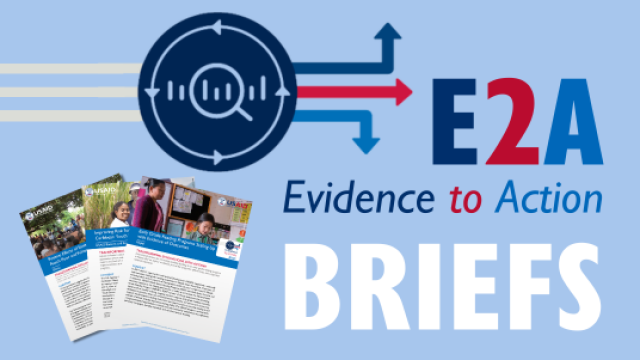
Evaluation
Evaluation is the systematic collection and analysis of strategy, project, and activity information to improve effectiveness and inform decisions about current and future programming.
Evaluation Supports Learning and Accountability
Evaluation is defined at USAID as “the systematic collection and analysis of data and information about the characteristics and outcomes of one or more organizations, policies, programs, strategies, projects, and/or activities as a basis for judgments to understand and improve effectiveness and efficiency.” The purpose of USAID evaluation is twofold: to learn to improve development outcomes and to ensure accountability to stakeholders. The Agency, partners, and the development community use a variety of designs and approaches, including mixed methods, impact evaluation, and participatory methods to continually learn and improve programming.
Evaluation Policy at USAID
USAID’s Evaluation Policy was updated in October 2020 to reflect changes to USAID’s Operational Policy (ADS 201), as well as feedback from USAID staff and the broader development and evaluation community. The Evaluation Policy is intended to provide clarity to staff and partners about the purpose of evaluation, required and recommended evaluations, and approaches for designing, conducting, disseminating, and using evaluations.
Latest Evaluation Insights from the Community
Read insights on evaluation approaches from our community of implementing partners.


